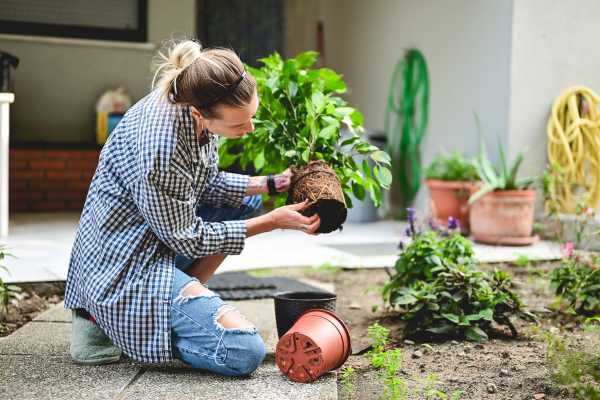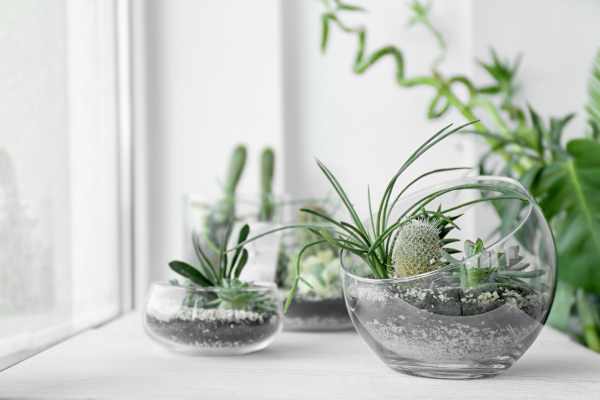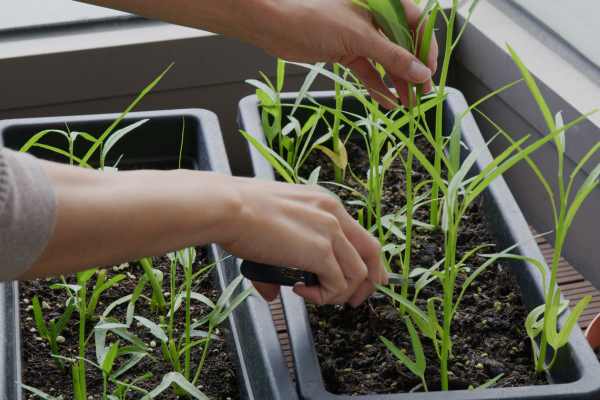Transitioning to a smaller living space, like a tiny house, doesn’t mean sacrificing life’s simple luxuries.
A delightful aspect of this lifestyle is nurturing your own herb garden, not only enhancing your culinary creations with fresh flavors but also transforming your confined living quarters into a cozy sanctuary.
In this piece, we’ll explore strategies for cultivating herbs in limited spaces, offering a fulfilling and gratifying experience for those tending to gardens within small abodes.
The Numerous Benefits of Herb Cultivation in Confined Spaces
Flavor and Freshness: For chefs, having constant access to fresh herbs is unparalleled. Cultivating your own herbs guarantees that your dishes burst with rich, authentic flavors impossible to replicate with store-bought counterparts.
Optimal Space Utilization: Employing compact pots or vertical gardens maximizes the utilization of limited space, a crucial consideration for individuals residing in compact homes.
This solution not only serves practical purposes but also adds aesthetic charm to your living quarters.
Economical Advantages: Purchasing fresh herbs in bulk from stores can be costly when you only require a small quantity. Cultivating your own herbs allows you to harvest as needed, saving money and curbing food wastage.
Promoting Sustainable Living: Small-space living often coincides with environmentally conscious behaviors. Homegrown herbs contribute to sustainability by reducing the environmental impact associated with commercial herb production and transportation.
Selecting Suitable Herbs for Your Compact Garden
Essential Culinary Staples: Begin with fundamental cooking ingredients like basil, thyme, rosemary, and parsley. These versatile herbs demand minimal effort to cultivate and can be utilized in various culinary applications.
Space-Efficient Varieties: Opt for compact herbs such as chives, mint, and cilantro that thrive in small containers or indoor environments. Leek serves as an excellent example of a space-saving herb.
Herbal Tea and Medicinal Plant Options: Consider cultivating herbs like chamomile, lavender, and lemon balm for brewing soothing herbal teas or exploring their medicinal properties.
Preparing Your Small Herb Garden for Growth
Selecting Appropriate Containers: Choose containers suitable for small spaces, such as wall planters, windowsill planters, or hanging baskets.
Optimal Soil and Fertilization: Ensure your herbs receive essential nutrients by using well-draining soil and organic fertilizers specifically designed for container gardening.
Sunlight Exposure and Moisture Management: Position your herb garden near a sunny window or utilize artificial grow lights to provide adequate sunlight. Monitor watering requirements to maintain herb health.
Cultivation and Maintenance of Small-Scale Herb Gardens
Seeding or Transplanting: Initiate your herb garden by planting seeds or acquiring seedlings from local nurseries. Carefully transfer them to designated containers.
Pruning and Harvesting Guidance: Regular pruning promotes lush growth, while consistent harvesting ensures continuous production. Acquire the necessary skills for handling each herb variety.
Natural Pest Control Measures: Combat harmful pests using eco-friendly methods like neem oil, diatomaceous earth, or introducing beneficial insects like ladybugs.
Innovative Concepts for Compact Herb Gardens
Vertical Herb Gardens: Utilize repurposed materials such as wooden pallets to construct attractive herb walls or hanging gardens, optimizing vertical space.
Windowsill Herb Garden: Transform your home’s windowsills into verdant sanctuaries by placing small herb pots, adding a touch of greenery indoors.
Hanging Herb Basket: Enhance the ambiance and fragrance of your tiny home by suspending a charming basket filled with herbs in your kitchen or living area.
DIY Herb Preservation Techniques
Drying Herbs: Preserve excess herbs by drying them for year-round culinary or medicinal use.
Herbal Oil Infusions: Enhance your culinary prowess and self-care routines by infusing herbal extracts into oils.
Freezing Herbs: Keep herbs fresh by freezing them in ice cube trays or freezer bags.
Health Benefits of Small Herb Gardens
Stress-Relieving Herbal Remedies: Cultivate lavender, chamomile, and lemon verbena for their calming properties, promoting stress reduction.
Home Aromatherapy: Harness the therapeutic benefits of essential oils extracted from herbs for aromatic indulgence at home.
Natural Remedies for Common Ailments: Grow herbs like aloe vera and peppermint, renowned for their healing properties in treating various ailments.

Addressing Challenges Faced by Small Herb Gardeners
Space Limitations and Plant Selection: Optimize available space and select herbs suited to your small garden’s conditions.
Climate and Environmental Adaptation: Tailor your gardening practices to your local climate to ensure optimal herb growth.
Space Organization and Aesthetics: Strike a balance in arranging herbs and containers to create a functional yet visually pleasing garden space.
Keep reading our articles:
Crafting a Petite Garden Haven
Maturing: Tips on Vertical Gardening for Residents of Small Dwellings
In Conclusion
Cultivating herbs in compact spaces offers an enriching and fulfilling journey for small-space dwellers.
With greenery, flavors, and natural remedies at your disposal, nurturing these tiny plants elevates not only your culinary adventures but also fosters a tranquil oasis within your diminutive abode.
FAQs:
1. Can herbs thrive indoors in minimal sunlight?
While some herbs tolerate low light conditions, most thrive in direct sunlight. Consider supplementing natural light with artificial grow lights if sunlight is limited.
2. What are suitable space-saving containers for small herb gardens?
Vertical planters, wall-mounted planters, and tiered shelves are excellent choices for maximizing space while accommodating multiple herb varieties.
3. How frequently should I water my small herb plants?
Watering frequency varies depending on the herb’s specific needs. Generally, water when the top inch of soil feels dry, but avoid overwatering to prevent root rot.
4. Can kitchen scraps be used to grow herbs in small spaces?
Yes, certain herbs like scallions, basil, and mint can be regrown from kitchen scraps. Place the cuttings in water until roots develop, then transfer them to soil.
5. Which herbs are ideal for beginners in small-scale gardening?
Basil, mint, chives, and parsley are beginner-friendly herbs, requiring minimal maintenance and forgiving to novice gardeners.


